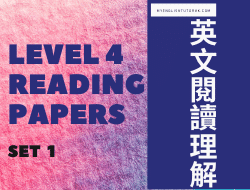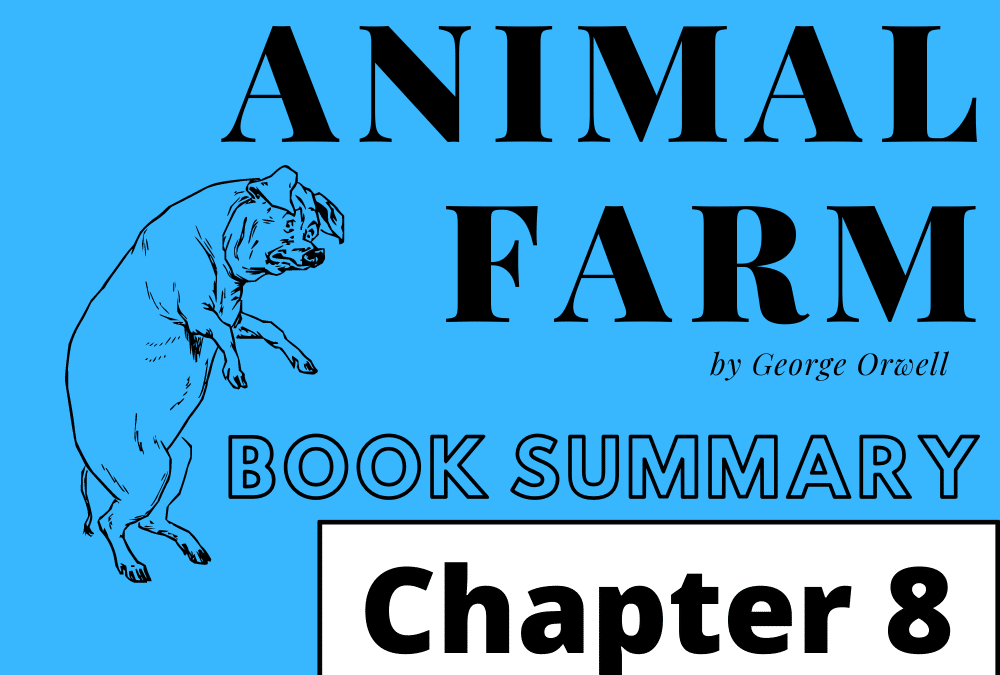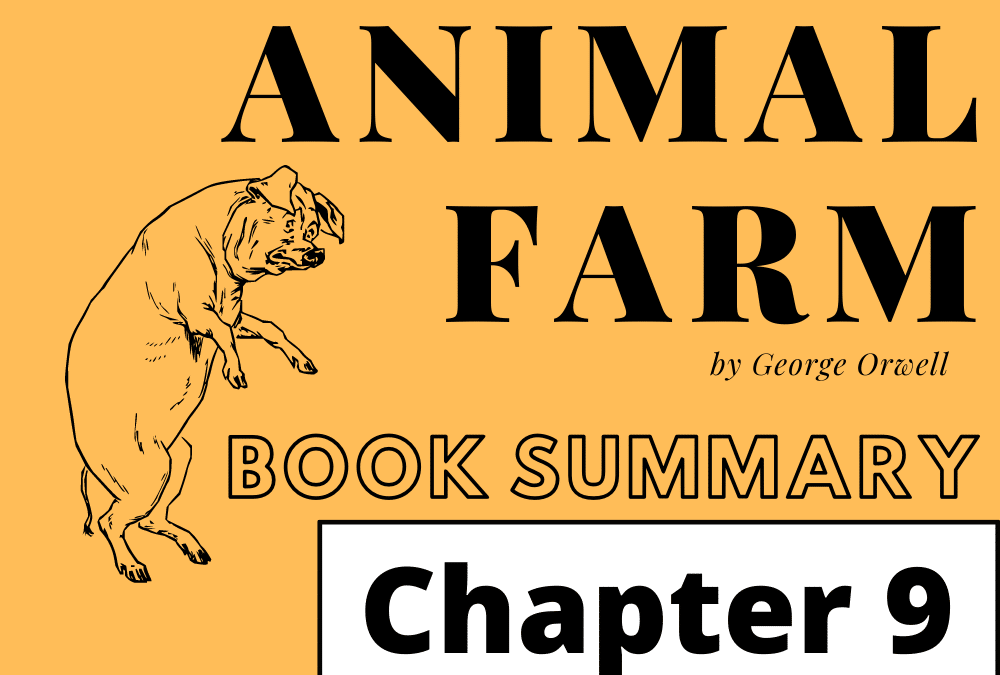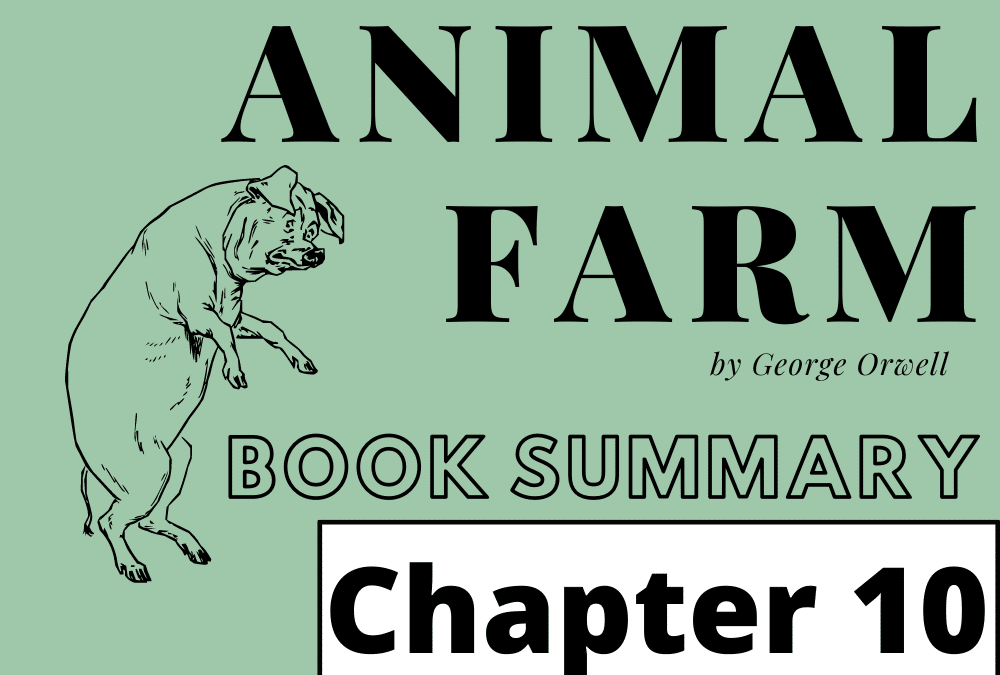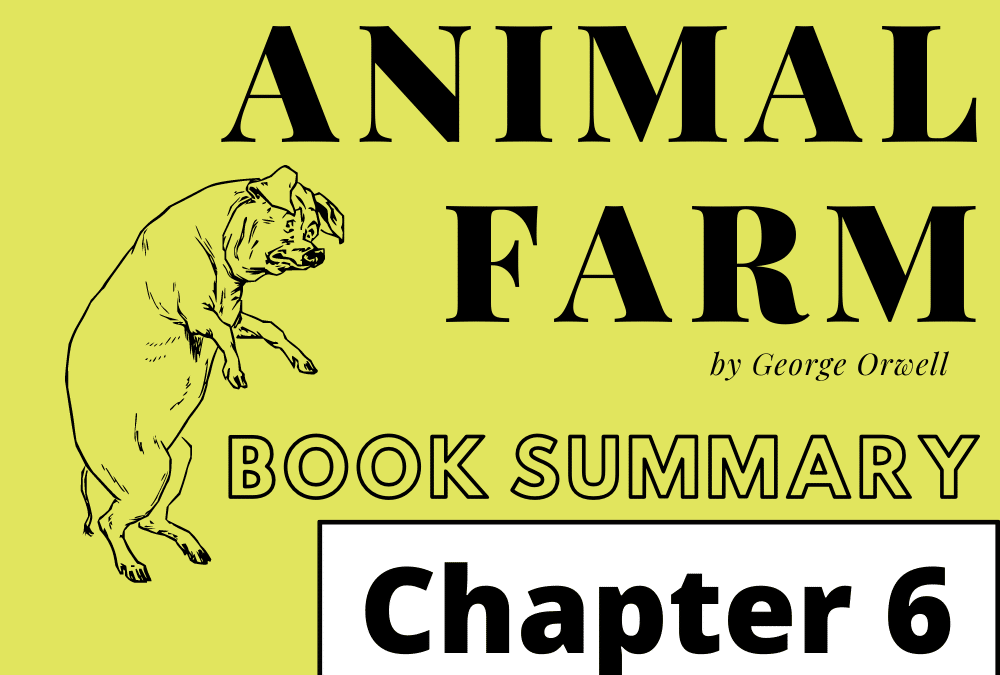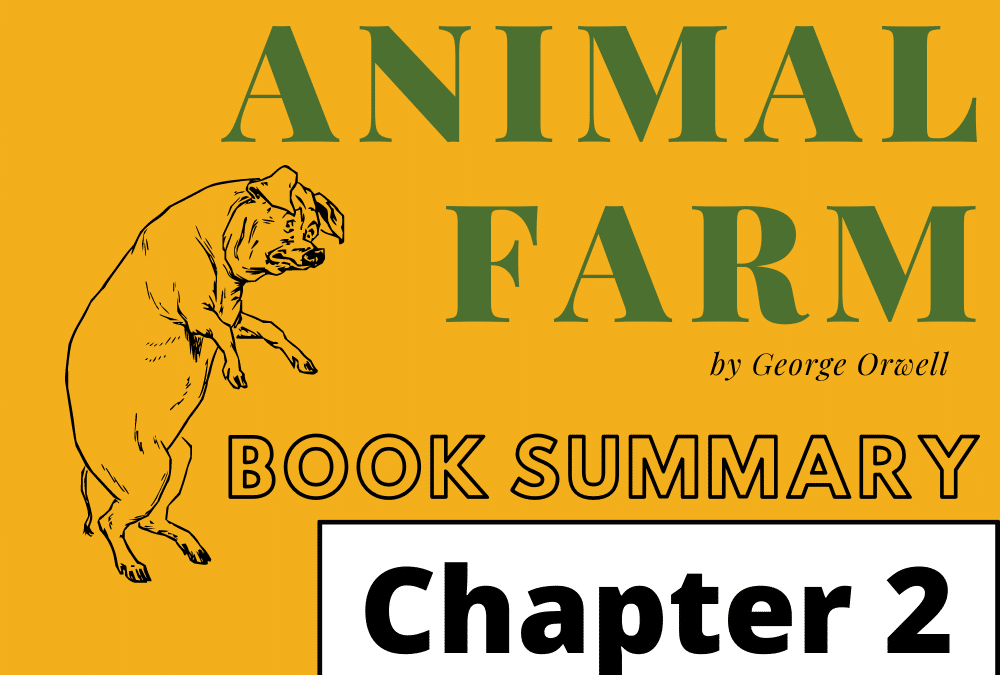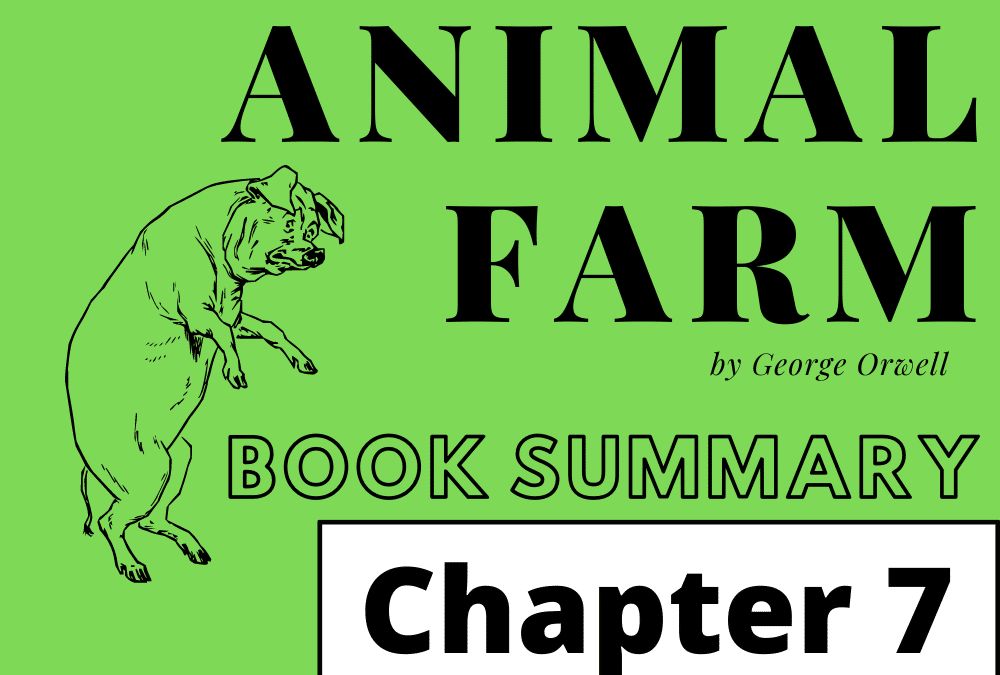
Animal Farm by George Orwell Chapter 07
Animal Farm by George Orwell Summary (Question and Answer)
Chapter Seven
|
CHAPTER SEVEN |
|||
|
1. |
54 |
February saw the weather deteriorate even further and soon the animals were facing an extreme shortage of food. Aware that the outside world was now focusing all of their attention on Animal Farm, Napoleon decided that it would be necessary to show them that the animals were not close to starvation. Accordingly he hatched a plan to impress Mr Whymper in the hope that the solicitor would convince the outside world that there were no food shortages after all. Name two ways in which Napoleon achieved this? |
In an attempt to convince Mr Whymper that there was no food shortage at Animal Farm, Napoleon tried two main tactics. The first of these was to arrange for Mr Whymper to overhear a number of staged conversations about how the rations were being increased. The second tactic used by Napoleon was to convince Mr Whymper that their store houses were full of grain by arranging for the grain-bins to be filled from the bottom up with sand. On the very top of which a small amount of grain would be sprinkled to give the impression that they were better stocked than they were in reality. |
|
2. |
56 |
Despite his posturing, it soon became obvious to Napoleon that Animal Farm would need to procure more grain or face starvation. Coming to an arrangement with Mr. Whymper, what did the pig arrange to sell in return for enough grain and meal to keep the farm going until the summer and what was the reaction from the animals affected? |
Napoleon arranged with Mr Whymper to supply four hundred eggs a week enabling the farm to secure a large quantity of grain. The chickens were extremely angry at this decision and argued that to take the eggs away at this point would amount to murder. |
|
3. |
56 |
With growing discontent, the farm soon approached a state of rebellion. How did the hens attempt to thwart Napoleon’s plans? |
In an attempt to thwart Napoleon’s plans the hens started to fly up to the rafters to lay their eggs which would then fall to the floor and break. |
|
4. |
56 |
Infuriated by this protest, Napoleon ordered a halt to the hen’s rations. All other animals were forbidden to give any grain to the hens, a rule enforced by the death penalty. The hens held out for five days but finally capitulated after a number of hens died. How many hens perished as a result of this protest? |
The protest came at a heavy cost of life and nine of the hens perished. |
|
5. |
57-58 |
For the rest of the winter whenever anything went wrong it was blamed on Snowball who was said to creep into the farm at night and set about doing damage. After several months of accusations, and a number of attempts to find the pig, Napoleon announced that he finally knew where Snowball was hiding. Where was this and what did Napoleon report that Snowball was planning? |
Squealer told the animals that Snowball had sold himself to the owner of Pinchfield Farm and they were now planning to invade Animal Farm with Snowball acting as the guide. |
|
6. |
59-60 |
Soon Napoleon was said to have discovered a number of documents which categorically proved that Snowball had been a secret agent working for Mr Jones from the very start. When this news was relayed to the animals by Squealer, many of the animals, including Boxer, refused to believe it. How did Squealer finally manage to persuade Boxer that it was true? |
Squealer tried many different tactics in an attempt to persuade Boxer that Snowball had always been working for Mr Jones but finally succeeded in convincing him by arguing that ‘Our Leader, Comrade Napoleon’ believes it to have been the case. As Boxer always believed everything that Napoleon said, he quickly changed his mind and agreed that ‘if Napoleon says it is true then it must be so’. |
|
7. |
61 |
After a few days, Napoleon called an assembly; during this meeting he accused four of the animals of working with Snowball. Who were these animals and how did they react to these accusations? |
Napoleon accused four pigs, who had earlier voiced their opposition to his policies, of working with Snowball. The four pigs were rounded up by a number of Napoleon’s attack dogs. Injured and at Napoleon’s mercy, all four pigs quickly confessed to the crime of helping Snowflake. |
|
8. |
61 |
How were the four animals accused of helping Snowbull punished by Napoleon? |
Napoleon ordered that the four pigs accused of helping snowbull should be executed by having their throats torn out by the dogs. |
|
9. |
62 |
After the four animals had been dealt with, Napoleon asked the animals if anyone else had anything to confess. A number of animals came forward to confess everything from stealing a small amount of grain to seeing snowflake in their dreams. How were these animals punished and how did the other assembled animals feel about this? |
All of the animals who came forward and confessed to a crime were put to death. The assembled animals were all shocked by the scenes of bloodshed and left feeling greatly disturbed by what they had witnessed. |
|
10. |
63 |
Boxer was as deeply affected by the scenes of murder and slaughter as anybody. How did he explain the incident and how did he decide to atone for the errors which had, in his opinion, led to the bloody scenes that he had witnessed. |
After some deliberation and deep thought, Boxer concluded that the problems being witnessed on the farm must be ‘due to some fault in ourselves’. To atone for this, Boxer decided that he would awake a full hour before everyone else in the future so that he could achieve even more before the others woke up. |
|
11. |
64 |
Clover was affected by what she had witnessed in an altogether different way. Even though she lacked the language to express it clearly, she realised that the Animal Farm in which she was living was not the Animal Farm that she had fought for or that Old Major had dreamt of. Whilst Clover was unable to adequately express this in words, she did find a way to do so. How was this and how did Squealer respond when he witnessed this? |
In an attempt to voice what she was feeling, Clover began to sing ‘Beasts of England’. Soon she was joined by many others who joined in her slow and pitiful rendition of the song. When Squealer heard the animals singing ‘Beasts of England’ he quickly rushed over to them and told them that the song was now forbidden. ‘Beasts of England’ was replaced by a two line refrain written by Minimus which was to be sung on all official occasions in the future. |


